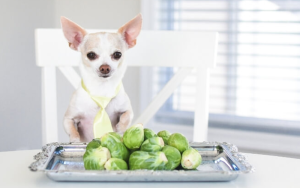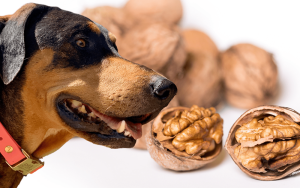Can Dogs Eat Cinnamon? A Comprehensive Guide

As a dog owner, you may often wonder about the safety of various human foods when it comes to sharing a bite with your furry friend. Cinnamon, a popular spice known for its warm, sweet flavor and pleasant aroma, is commonly found in our kitchens. But
can dogs eat cinnamon? This question has sparked much debate among pet owners and veterinarians alike. In this in-depth article, we will explore the topic to help you make informed decisions about whether or not to include cinnamon in your dog’s diet.
Understanding Cinnamon
Cinnamon comes from the inner bark of several tree species belonging to the genus Cinnamomum. It has been used for centuries in cooking, baking, and traditional medicine. There are two main types: Ceylon cinnamon (also known as “true” cinnamon) and Cassia
cinnamon. Ceylon cinnamon is considered to be of higher quality and has a milder flavor compared to the more pungent Cassia cinnamon, which is more commonly available in grocery stores.
Nutritional Value of Cinnamon for Humans
For humans, cinnamon offers some potential health benefits. It contains antioxidants, which can help combat oxidative stress in the body. It has also been associated with better blood sugar control, as it may improve insulin sensitivity. Additionally,
cinnamon has anti-inflammatory properties that could contribute to overall well-being. However, it’s important to note that these benefits are based on human consumption and dosages, and the situation is quite different when it comes to our canine
companions.
Can Dogs Eat Cinnamon?
The short answer is that in small amounts, cinnamon is generally not toxic to dogs. However, it doesn’t mean it should be a regular part of their diet. Dogs have different digestive systems than humans, and what might be beneficial or harmless for us
could potentially cause issues for them.
Potential Risks of Cinnamon for Dogs
- Digestive Upset: Even a small amount of cinnamon can irritate a dog’s sensitive stomach. It may lead to symptoms like vomiting, diarrhea, or an upset tummy. This is because dogs lack certain enzymes that humans have to break down complex substances,
and cinnamon can be difficult for their digestive tracts to handle.
- Oral Irritation: Cinnamon powder can be abrasive. If a dog accidentally inhales it or gets it stuck in their gums, throat, or nasal passages, it can cause irritation. In severe cases, it could lead to coughing, choking, or difficulty breathing.
- Allergic Reactions: Just like humans, dogs can develop allergies. Cinnamon contains compounds that might trigger an allergic response in some dogs. Signs of an allergy can include itching, hives, swelling, or even anaphylactic shock in extreme
cases.
- Interaction with Medications: If your dog is on any medications, cinnamon could potentially interact with them. For example, it may affect the absorption or efficacy of certain drugs. Always consult your veterinarian before introducing any
new food, especially if your dog is under medical treatment.
Cinnamon-Containing Products to Avoid
- Cinnamon Rolls and Baked Goods: These are often high in sugar, fat, and other ingredients that are not suitable for dogs. The combination of cinnamon with these additives can be doubly harmful. The sugar can lead to obesity, dental problems,
and diabetes in dogs, while the fats can cause pancreatitis.
- Cinnamon Candies and Flavored Chews: These are designed for human consumption and are not formulated to meet a dog’s nutritional needs. The artificial flavors, colors, and high sugar content make them a big no-no. Ingesting these can cause
choking hazards and serious digestive issues.
- Cinnamon Essential Oil: While essential oils have gained popularity in recent years, cinnamon essential oil is extremely potent and should never be given to dogs. It can be toxic when ingested or even inhaled in large amounts. Even a small
amount can cause severe irritation to the respiratory system, skin, and mucous membranes.
Signs of Cinnamon Toxicity in Dogs
If you suspect your dog has ingested a large amount of cinnamon or is showing any abnormal symptoms after exposure, watch for the following signs:
- Vomiting: Repeated vomiting can indicate that the dog’s stomach is irritated or that there is a more serious issue.
- Diarrhea: Loose stools or diarrhea can be a sign of digestive distress. If it persists or is accompanied by blood, it’s crucial to seek veterinary attention immediately.
- Drooling Excessively: Unusual drooling can be a sign of oral or throat irritation.
- Difficulty Breathing: If cinnamon has irritated the respiratory tract, your dog may struggle to breathe normally. This is an emergency situation that requires immediate medical intervention.
- Weakness or Lethargy: A sudden lack of energy or weakness could suggest that the dog’s body is under stress due to an adverse reaction.
What to Do If Your Dog Eats Cinnamon
- Small Amounts: If your dog has licked up a tiny bit of cinnamon, say from a spilled spice container, monitor them closely for any signs of discomfort. Offer them fresh water to drink and keep an eye on their behavior. In most cases, they will
be fine.
- Moderate Amounts: If you think your dog has eaten a bit more, like a teaspoon or so of cinnamon powder, it’s still advisable to call your veterinarian. They can guide you based on your dog’s size, age, and overall health. They may recommend
keeping your dog off food for a few hours to let their stomach settle and then gradually reintroducing a bland diet.
- Large Amounts or Signs of Toxicity: If your dog has consumed a significant quantity of cinnamon or is showing any of the toxicity signs mentioned above, don’t wait. Rush them to the nearest veterinary clinic or emergency animal hospital. Time
is of the essence in treating potential poisoning cases.
Alternatives to Cinnamon for Dogs
If you want to add a little something special to your dog’s diet or treats, there are plenty of dog-safe options. Some ideas include:
- Pumpkin Puree: It’s rich in fiber and can help with digestion. You can add a small amount to their regular food.
- Plain Yogurt: Opt for unsweetened, plain yogurt. It contains beneficial probiotics that can support gut health. Just make sure your dog isn’t lactose intolerant first.
- Carrots: These crunchy veggies make a great low-calorie treat. They can also help keep your dog’s teeth clean.
- Apples: Cut up into small, bite-sized pieces (without the seeds), apples can provide a sweet and healthy snack. The fiber in apples is good for digestion.
Conclusion
In conclusion, while cinnamon is not highly toxic to dogs in small doses, it’s best to err on the side of caution. The potential risks of digestive upset, oral irritation, allergies, and interactions with medications far outweigh any potential benefits.
As responsible pet owners, we should focus on providing a balanced diet that meets our dogs’ specific nutritional requirements. Avoid giving them cinnamon-containing products and always consult your veterinarian if you have any doubts about what your
dog can and cannot eat. By doing so, we can ensure our furry friends stay healthy and happy for years to come.
Remember, your dog’s health and well-being should always be the top priority, and a little knowledge can go a long way in protecting them from potential harm. So, the next time you reach for that cinnamon shaker in the kitchen, think twice before sharing
it with your four-legged pal.






